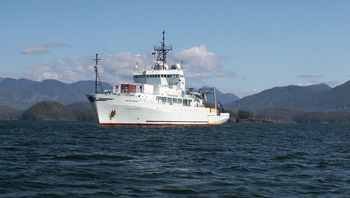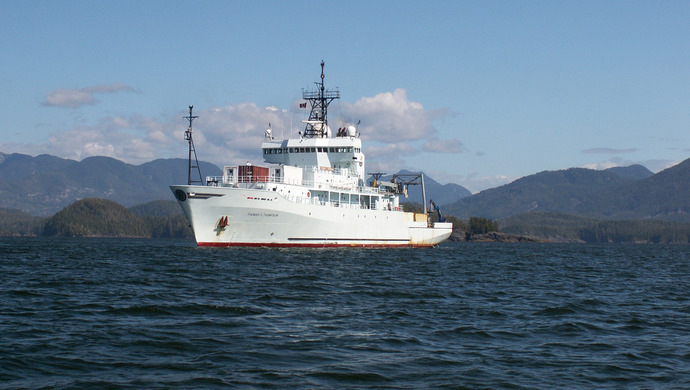Course Description:
The dynamic behavior of the Juan de Fuca Plate and the processes that operate in the overlying ocean and atmosphere provide a natural laboratory to study the ocean and the complex geological, biological, chemical and physical systems within it. This unique interdisciplinary, hands-on course will provide you with the experience of conducting research related to many of these processes on an oceanographic research cruise. During this two week cruise, you will work alongside experienced scientists, engineers and the ship’s crew to gain at sea research and sea-going experience using advanced oceanographic research instruments and vehicles, and you will conduct your own research using data collected with some of these tools. Additionally, as a member of this oceanographic expedition and class, you will be taking part in the preparation for installation of America’s first high-power and high-bandwidth cabled observatory. This ocean observatory is called the Regional Scale Nodes (RSN), which the University of Washington is leading the design, installation and operation of (www.interactiveoceans.washington.edu). The RSN is part of NSF’s Ocean Observatories Initiative, which will construct a network of instruments, undersea cabled observatories and instrumented moorings that span the Western Hemisphere. The RSN component will connect state-of-the-art instruments and full water column moorings to high-power and high-bandwidth networks permanently installed across the Juan de Fuca tectonic plate off the coasts of Washington and Oregon. As a member of this course, you will be participating in a truly groundbreaking effort to transform the kind of science and exploration that we can do in the world’s oceans.
Instructors:
Dr. Deborah Kelley & Dr. John Delaney



